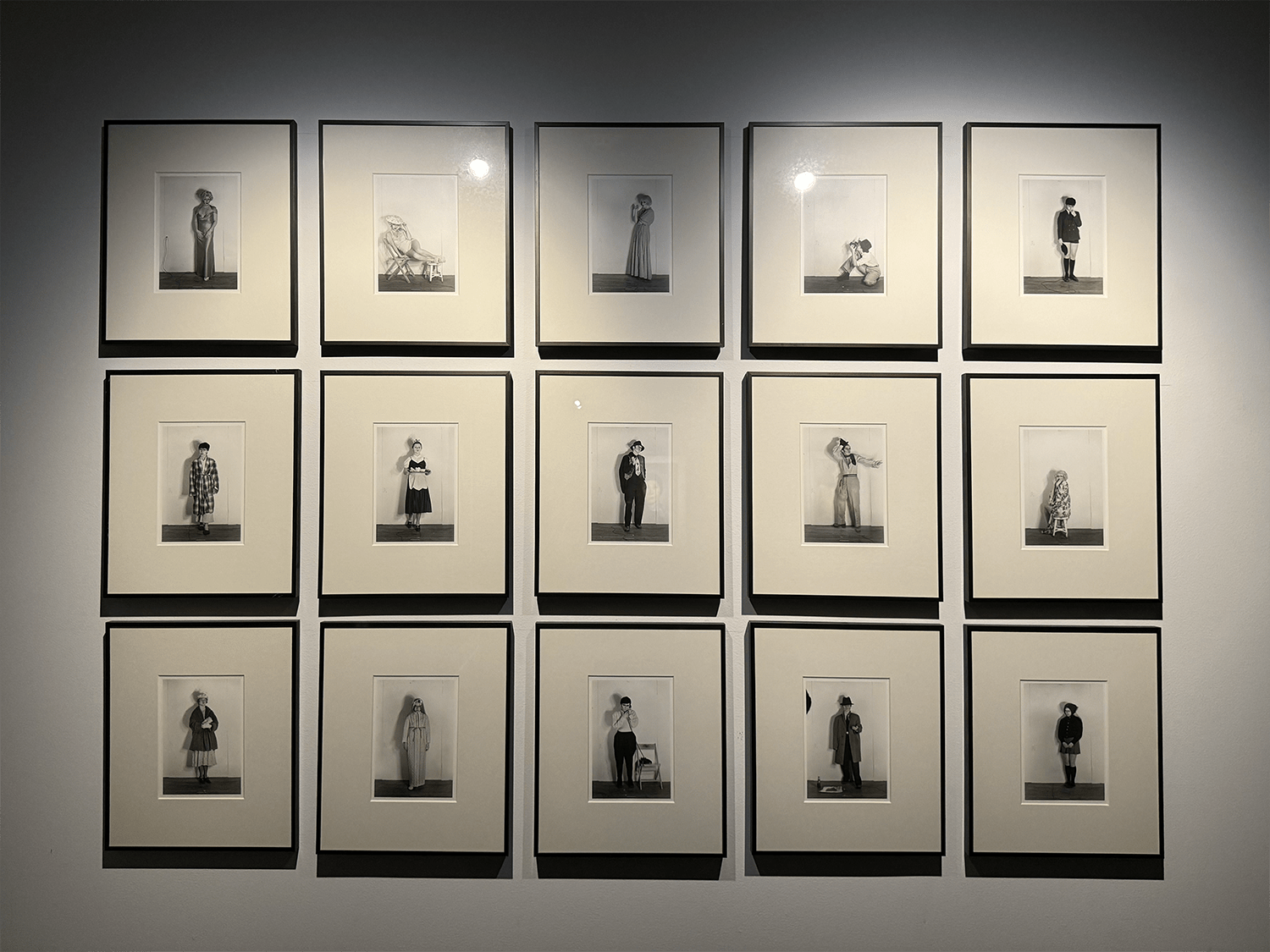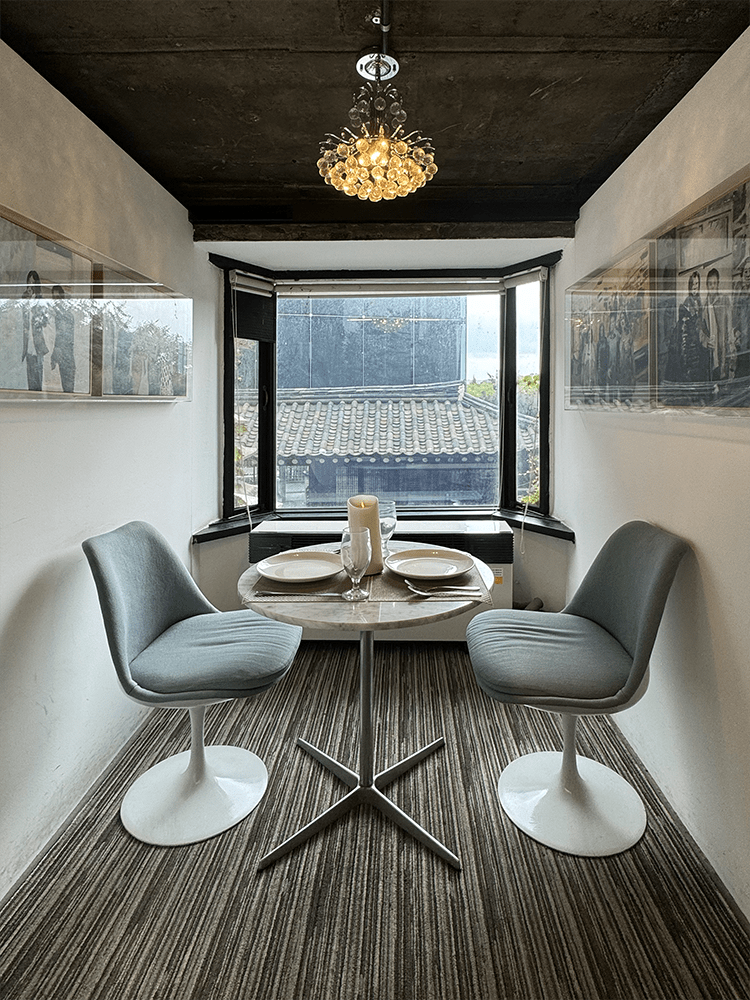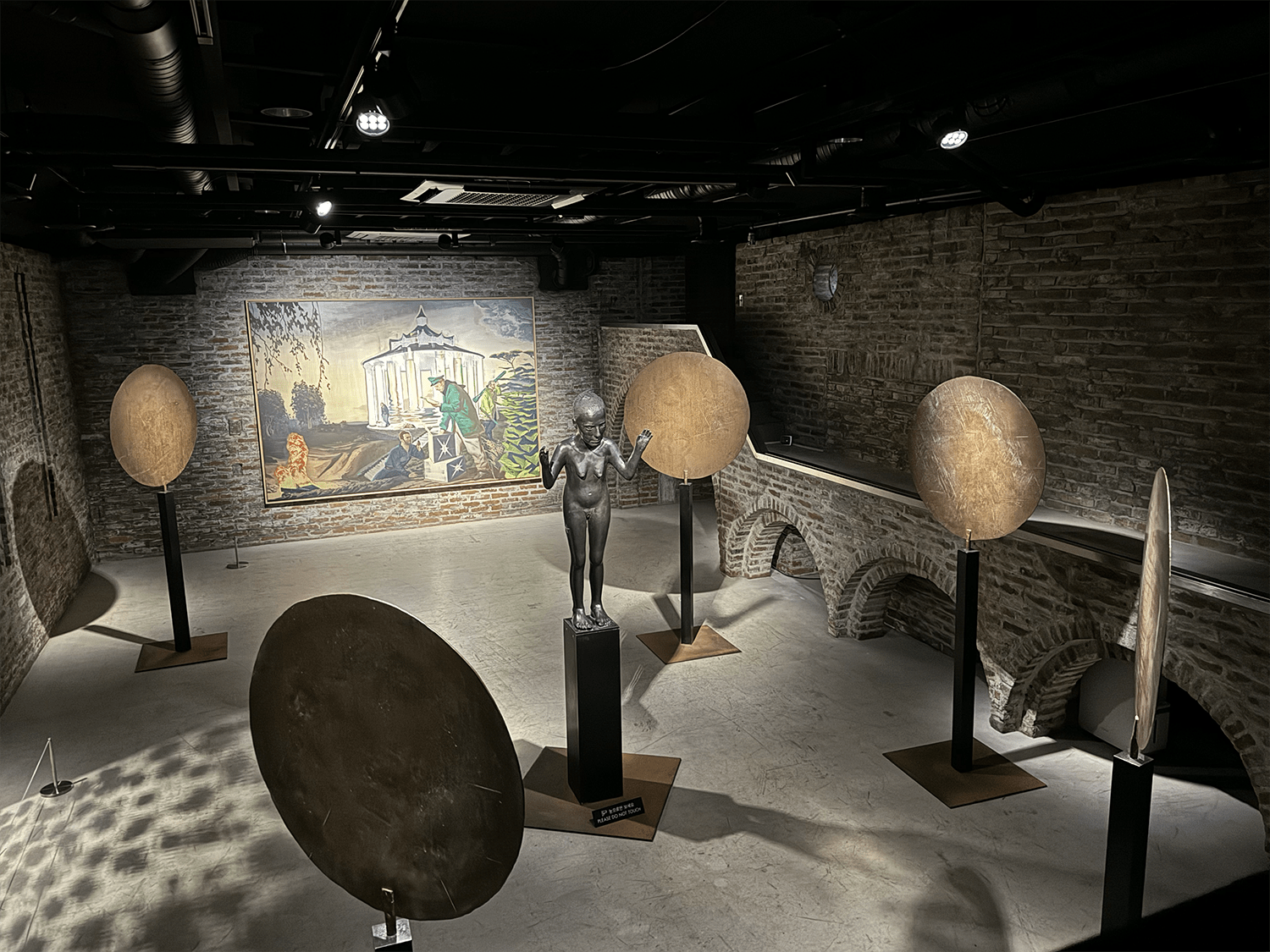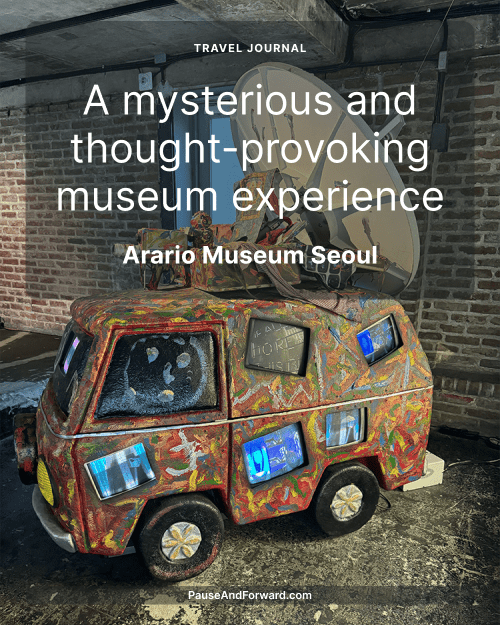A Nostalgic and Gritty Art Encounter at Seoul’s Arario Museum
Arario Museum in Space
Arario Museum in Seoul is a contemporary art museum showcasing the personal collection of ARARIO Inc. founder Kim Chang-il. Not to be confused with the nearby Arario Gallery, the museum has two locations: one in Seoul and another in Jeju Island.
I visited the Arario Museum in Seoul during the Frieze Seoul Art Fair in September 2024, and it turned out to be one of the most memorable art experiences of my trip.
Admission to the Arario Gallery is free, while the Arario Museum is ticketed—reflecting their different purposes. Both spaces are located within the same complex in Jongno-gu, making it convenient for visitors to explore them together.
The museum is housed in a repurposed building full of character and history, which contrasts beautifully with the clean, minimalist architecture of the gallery.
I visited as part of a guided art tour, and while I loved the raw and nostalgic atmosphere of the museum, I didn’t have enough time to properly photograph my favorite installations and moments inside.
How an Old Office Became a Contemporary Art and Culture Space
The Arario Museum in Seoul is housed in a historic building that once served as the office and residence of renowned Korean architect Kim Swoo Geun, founder of the SPACE Group architecture firm.
The building was later reimagined by Japanese architect Jo Nagasaka, who redesigned both the structure and interior to serve its new purpose as a contemporary art museum.
Within the museum’s courtyard stands a beautifully preserved traditional hanok. One half of the hanok has been thoughtfully renovated into a café by Fritz Wonseo, while the other half previously housed a restaurant.
The café is a striking blend of old and new—its traditional hanok roof contrasts elegantly with modern full-height glass windows that offer views of the main road and the small courtyard garden near the museum’s entrance.
Exploring the Raw, Mysterious Charm of Arario Museum in Seoul
Just behind the café, is the museum lobby, offering a stark contrast to the warm, airy atmosphere of the hanok. The small lobby is dimly lit, with deep-toned walls and dark counters that immediately set a mysterious, almost cinematic mood, hinting at the unconventional experience that awaits inside.
Arario Museum has thoughtfully preserved much of the original interior architecture from its past life as the office of architect Kim Swoo Geun. The red brick walls, narrow corridors, winding staircases, and even the original meeting rooms and restrooms have been repurposed as part of the exhibition space.
The building’s uneven ceilings and sloping floors add to the raw, immersive feel of the museum, turning every corner into a distinct and memorable viewing experience.
Each floor of Arario Museum offers a unique layout, and the placement of artworks feels highly intentional. The spatial design and architectural quirks of each room are thoughtfully used to enhance the emotional and visual impact of the art on display. This careful synergy between space and artwork creates a truly immersive museum experience.
You can read more about the Arario Museum’s permanent collection and exhibition highlights here
Some of my personal highlights include powerful works by Sophie Calle, Cindy Sherman, and Nam June Paik. I also loved the “Eclipse” exhibition—a collection highlight that featured a hauntingly beautiful sculpture by Kiki Smith.
On my personal wishlist: I’d love to revisit the Arario Museum in Seoul on my own—without the time constraints of a guided tour—to take it all in at my own pace.
I’m also hoping to visit the Arario Museum in Jeju someday. Based on what I’ve read on their official website, the Jeju location seems much larger, with three separate spaces and a distinctly different atmosphere. It looks like a completely unique experience, both in terms of the collection and the overall vibe.
Found this post helpful? 📌 Pin the image above to save it for later and share the travel inspiration with others!










